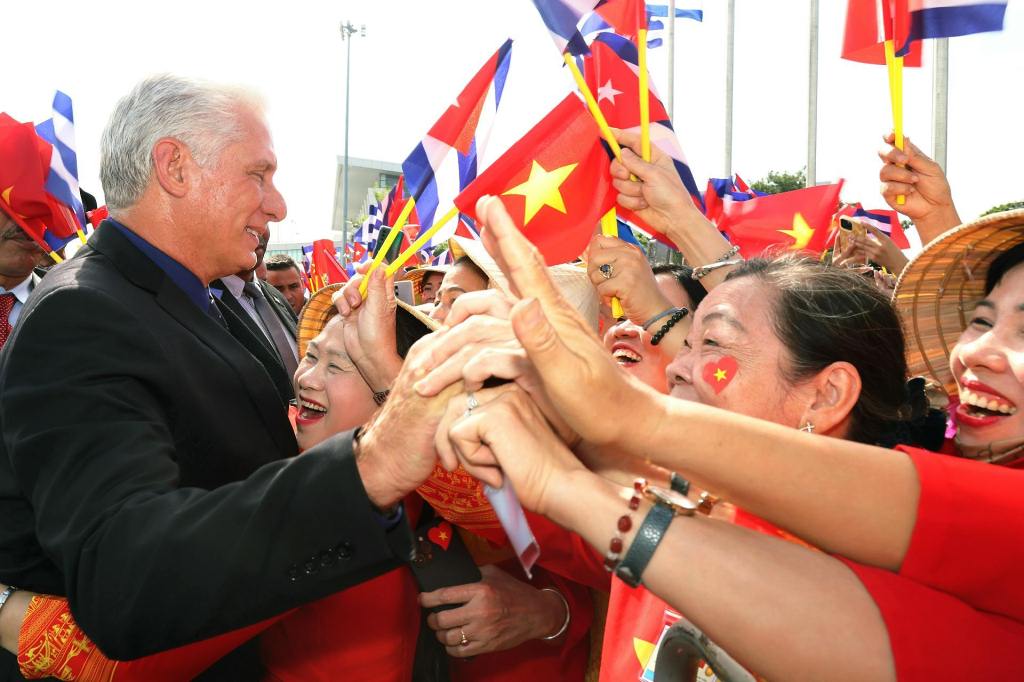
Hanoi, September 2. - The First Secretary of the Central Committee of the Communist Party of Cuba (CPC) and President of the Republic, Miguel Díaz-Canel, described the three-day official visit to Vietnam, which concluded today, as satisfactory and fruitful.
The assessment, made by the head of state during a meeting with members of the Cuban state mission here, covers all aspects: ideological, political, and economic-commercial, he noted in response to a question from Prensa Latina.
This visit, he said, ratified the willingness, determination, and will of the Communist Party, the State, and the Government of Vietnam to work with Cuba, as well as their sensitivity to the difficulties the country is currently facing as a result of the greatly intensified economic, financial, and commercial blockade imposed by the United States.
In this regard, he commented that even amid all the activities generated by the 80th anniversary of the August Revolution and National Day, in whose central commemoration ceremony he participated today, he had the opportunity to meet with the country's top leaders.
Díaz-Canel said he was deeply impressed by the joy and pride with which the Vietnamese people celebrated the anniversary, as well as by the many spontaneous displays of sincere affection the Cuban delegation received in the places they visited, or when the caravan passed through the city streets.
He also mentioned that 2026 will mark two momentous anniversaries in the history of relations between Vietnam and Cuba.
These are the 60th anniversary of the first visit to this Indochinese nation by Army General Raúl Castro, who met President Ho Chi Minh at the time, and of the iconic and momentous phrase by the historic leader of the Cuban Revolution, Fidel Castro, that for Vietnam we are willing to give even our own blood.
Focusing particularly on bilateral economic cooperation, he noted that this trip was undertaken with already tangible results, less than a year after the state visit made to Cuba by the Secretary General of the Communist Party of Vietnam (PCV, for its acronym in Spanish) and then also President of the Republic, To Lam.
There is a change in business dynamics that opens new prospects for advancing bilateral collaboration, particularly in the areas of food production, biotechnology and the pharmaceutical industry, consumer goods, and renewable energy, he noted.
During this meeting, the official swearing-in ceremony of the Extraordinary and Plenipotentiary Ambassador of Cuba to Vietnam, Rogelio Polanco, also took place, which had the singularity of taking place in the context of the visit of the Cuban president.
During the solemn ceremony, the Director General of Bilateral Affairs of the Cuban Ministry of Foreign Affairs, Carlos Miguel Pereira, expressed his conviction that Polanco had successfully fulfilled his duties, with the dedication and commitment that characterizes Cuban diplomats. (Text and photo: PL)